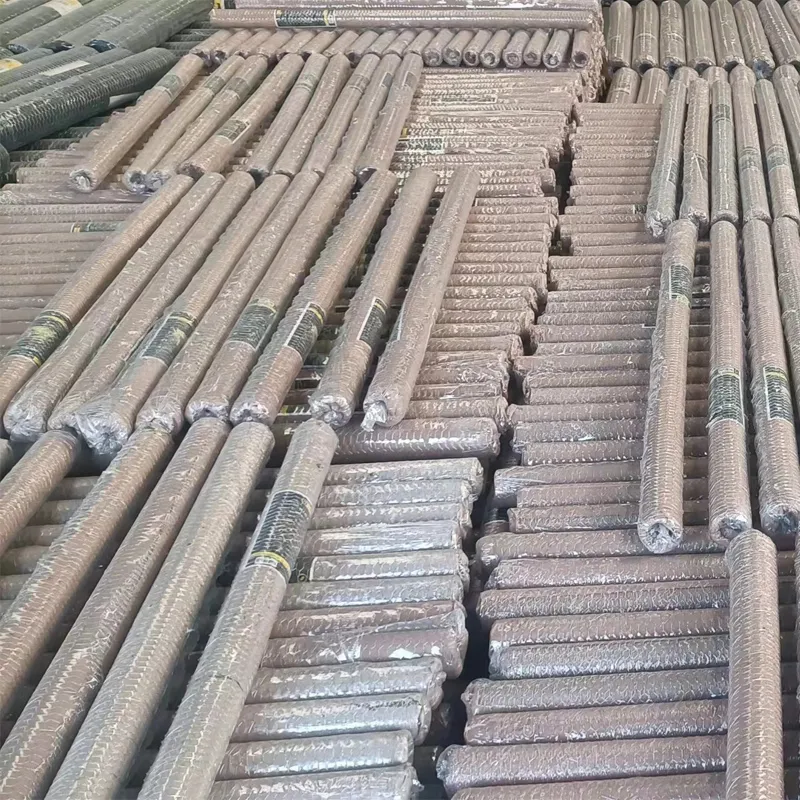Aug . 02, 2024 14:45 Back to list
Exploring the Benefits and Applications of Field Wire Fencing in Agricultural Practices
Field Wire Fencing A Comprehensive Overview
Field wire fencing, often called woven wire fence or agricultural wire fencing, is a popular choice for defining boundaries, protecting livestock, and securing crops in rural and agricultural settings. Its versatility and durability make it an invaluable asset on farms and ranches. This article aims to explore the benefits, types, installation processes, and maintenance of field wire fencing.
Benefits of Field Wire Fencing
One of the primary advantages of field wire fencing is its strength. Constructed from high-tensile steel wire, this type of fencing is designed to withstand the elements and resist sagging and deformation. This robustness ensures that it can effectively contain livestock, thus preventing them from wandering into dangerous areas or neighboring properties.
Another significant benefit is its adaptability. Field wire fencing can be customized to meet various needs, whether you are enclosing a small garden or securing vast pastures. It can range in height and mesh size, allowing farmers and ranchers to select a fencing solution that best suits their specific livestock or agricultural requirements.
Moreover, field wire fencing is a cost-effective option compared to other fencing types like wooden or vinyl fences. While the initial investment may be more substantial than barbed wire, it tends to require less maintenance over time, providing long-term savings.
Types of Field Wire Fencing
Field wire fencing comes in several types, each designed with specific applications in mind
1. Woven Wire Fencing This is the most common type, characterized by its vertical and horizontal wires woven together. It provides excellent containment for various livestock, including sheep, goats, and cattle.
2. Barbed Wire Fencing While not as safe for small animals, barbed wire can be an effective solution for larger livestock or as a perimeter defense against intruders.
field wire fencing

3. High-Tensile Wire Fencing Made from stronger wire materials, high-tensile fencing maintains its shape and tension even when subjected to heavy strain, making it suitable for larger properties.
4. Horse Fencing Specially designed to safely contain horses, this type of fencing often features a combination of woven wire and smooth wire to prevent injuries.
Installation Process
Installing field wire fencing requires careful planning and execution. The first step is to define the boundary or area that needs to be enclosed. Stake out the corners and set the posts, which are typically made of treated wood or metal and should be installed deep in the ground for stability.
Once the posts are in place, attach the fencing material, ensuring it is taut and secure to prevent sagging. This process may require tensioning tools and additional hardware, such as clips or staples, to ensure a sturdy installation. It's essential to regularly check the fencing for signs of wear or damage, especially after severe weather conditions.
Maintenance Tips
Despite its durability, field wire fencing does require regular maintenance to prolong its lifespan. Inspect the fence periodically for any signs of corrosion, sagging, or damage caused by weather or wildlife. Tightening loose wires and replacing damaged sections will help maintain the fence's integrity.
In addition, keeping the fence line clear of overgrown vegetation is crucial. Not only does this help maintain visibility, but it also prevents plants from compromising the stability of the fence.
Conclusion
Field wire fencing offers a practical and effective solution for farmers and ranchers aiming to protect their livestock and property. With varied options available and a manageable maintenance routine, this type of fencing is an investment that can yield substantial benefits in agricultural settings. When installed and maintained correctly, field wire fencing can serve for decades, ensuring a secure environment for both animals and crops.
-
The Role of Field Wire Fence in Grassland Conservation
NewsJul.15,2025
-
Stainless Steel Razor Wire Durability in Coastal Environments
NewsJul.15,2025
-
Enhancing Home Security with Mesh Fences
NewsJul.15,2025
-
Diamond Mesh Wire for Small Animal Enclosures
NewsJul.15,2025
-
Common Wire Nail Tensile Strength Testing for Woodworking
NewsJul.15,2025
-
Barbed Wire Corrosion Resistance Galvanization Techniques
NewsJul.15,2025









